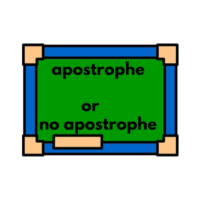Today is for those times when you’re not quite sure if you want to use ‘proved’ or ‘proven.’ Both prove and proven are formed from the verb prove. Here are the usage variations: Present tense: prove Simple past tense: proved Past participle: proved Irregular past participle: proven Correct usage examples: He has proven his case. He proved his case. She proved he
(This is an edited transcript from a live chat with Shelley Armitage at The Writer’s Chatroom on Jan 22, 2017.) Moderator Lisa Haselton (aka Lisa J Jackson): Welcome to The Writer’s Chatroom. Our mission is to present fun and educational chats for readers and writers. Let me introduce our guest, Shelley Armitage, author of the memoir, Walking the
In my editing endeavors recently, I’ve encountered a lot of words that spellcheck doesn’t always catch and so it prompted me to share a few of them with you. Passed (verb) vs Past (preposition or adverb): The time has passed for you to submit the rebuttal. That event happened in the past. I passed by
If a word already ends in an s, do you add another s to make it possessive? Or can you simply add an apostrophe? Let’s look into the case of plural possessives today. To start, know that you want to use an apostrophe to show that a thing or person belongs to or relates to someone
It’s a common trouble spot for a lot of people — creating a story or document and the words are flowing easily, but then the conundrum of ‘that’ or ‘which’ arises. Do you rewrite the sentence to avoid the confusion all together? Do you flip a coin to decide? Or maybe you just go





